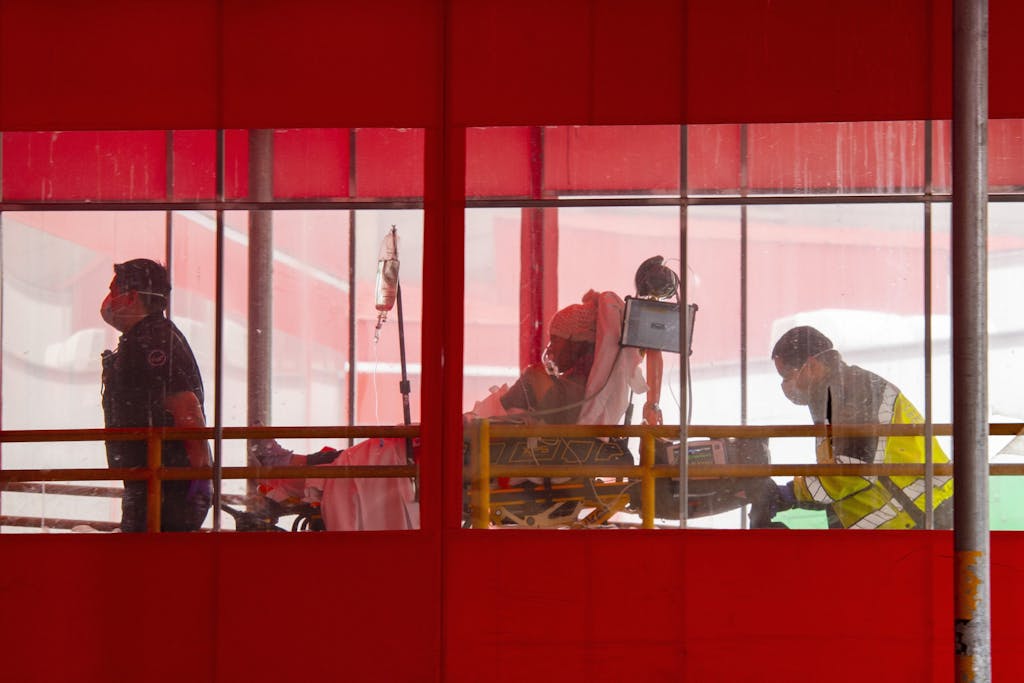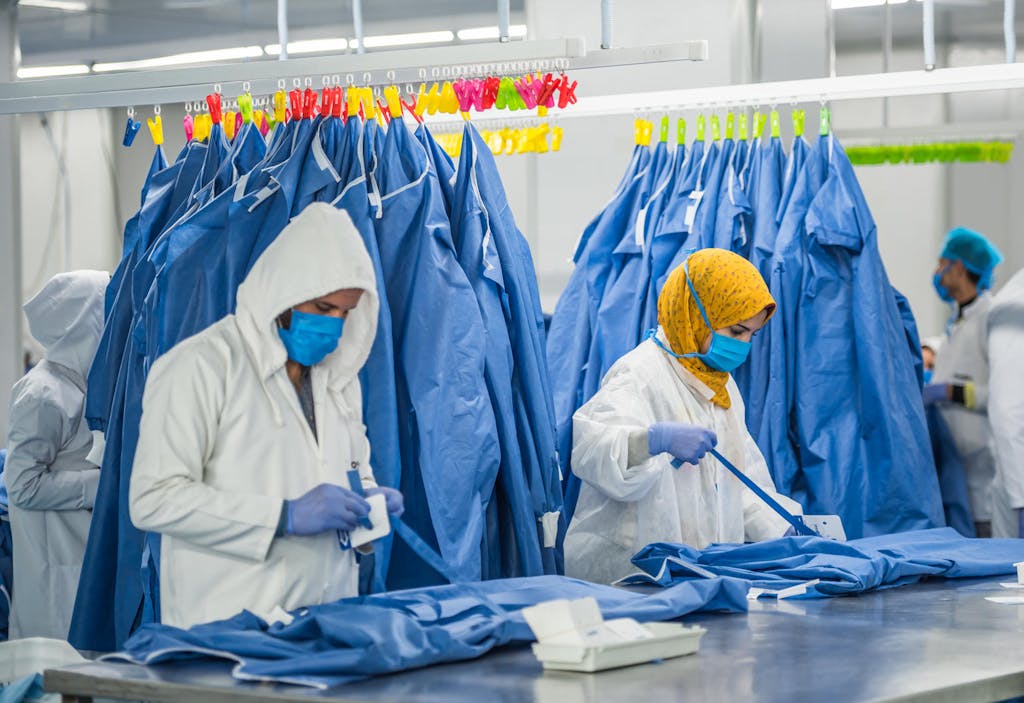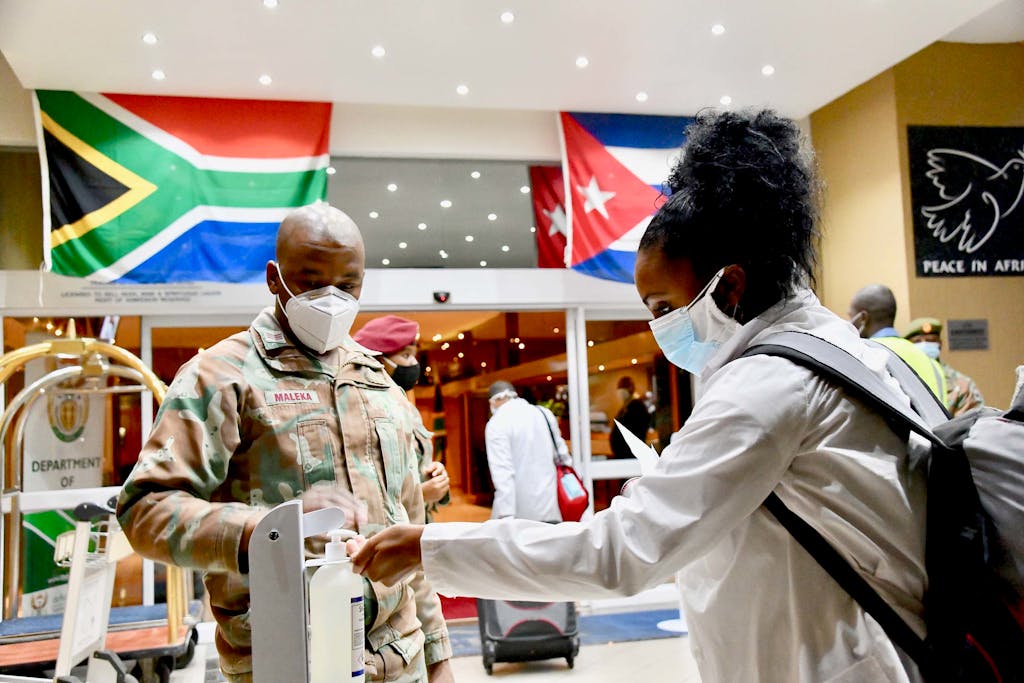COVID-19 took the world by surprise, forcing even the most prepared countries to reexamine their ability to respond to pandemic threats. As the first waves of COVID-19 were sweeping the globe, world leaders gathered for the World Health Assembly in May of last year. It was there, at the annual meeting of the world’s health leaders, that sweeping reviews were called for — of everything from global health security policies and systems to the role of the World Health Organization and the performance of its Emergencies Programme in particular. Ahead of the World Health Assembly this year, three reports were issued to identify gaps in the global pandemic response and to propose collective solutions to shore up preparedness for the next global health threat.

After a global pandemic shut down economies and upended lives, the world wanted answers — and rightfully so. Global leaders demanded an explanation to the questions haunting us all, chief among them: How did COVID-19 spread so fast? And what needs to change to ensure an outbreak of this scale never happens again?
During the 2020 World Health Assembly (WHA), countries called for the establishment of an independent review body to look at the global pandemic response, figure out what happened when, and identify how the global response can be improved. As a result, WHO Director-General Dr. Tedros Adhanom Ghebreyesus commissioned the creation of the Independent Panel for Pandemic Preparedness and Response. Co-chaired by former Liberian President Ellen Johnson Sirleaf and former New Zealand Prime Minister Helen Clark, the Independent Panel was tasked with learning lessons from the past and providing a road map to bolster global institutions so they can better respond to pandemic threats.
As part of the pandemic response assessment, countries also called for review of what’s known as the International Health Regulations (IHRs) — the global, legally binding framework that defines countries’ rights and obligations in handling public health emergencies that have the potential to cross borders. In response, the IHR Review Committee was established, beginning its work in September 2020 to consider and recommend reforms to the IHRs that could facilitate a swifter, more effective global response.
Aligning itself with the resolution, the Independent Oversight and Advisory Committee (IOAC) of the World Health Organization (WHO), an independent committee formed in 2016 to oversee the progress of WHO’s Emergencies Programme, focused its review on the performance of the Emergency Programme’s role in WHO’s COVID-19 response. The Committee recently released its annual review, outlining suggested reforms.
Calls for Sweeping Change
Despite the varied scope of these reviews, each recognized that significant changes to global health systems and policies must be made to better prepare the world for the next pandemic. Below are some key findings each review found and why they matter.
Recommendations from the Independent Panel
The Independent Panel found that the international community’s pandemic preparedness and response capabilities are wholly insufficient and underfunded, with large gaps at the global and national levels. The Independent Panel, which has the broadest mandate of the three review bodies, called for a sweeping transformation of the pandemic preparedness landscape. Released on May 12, 2021, many of the recommendations focused on increasing global and national leadership on pandemic preparedness and response. To strengthen global capacities, among other things, the Independent Panel recommended establishment of a Global Health Threats Council that can enforce recommendations around preparedness and response, as well as allocate needed funding. For funding, the Independent Panel recommended a new International Pandemic Financing Facility to galvanize sustained funding for preparedness and the capability to rapidly mobilize up to $100 billion during a pandemic if needed.

The Independent Panel recommended that WHO’s role be strengthened, noting it “has an indispensable leadership role in the international system for prevention, preparedness and response to a global health emergency such as a pandemic.” To enable WHO to act as swiftly as possible, the Independent Panel also suggested that WHO establish an international surveillance system with the authority to publish data about an outbreak without requiring approval from Member States and be guaranteed access to investigate outbreaks of concern, which has been a serious point of contention with some countries throughout this pandemic.
At the national level, the Independent Panel noted that public adherence to public health measures and strains on health facilities were key challenges over the past year. To address these issues, the Independent Panel recommended the appointment of national pandemic coordinators by Heads of State, increased investments in national health systems, and greater roles of communities as key actors in pandemic preparedness and response.
To build support for implementing its recommendations, the Independent Panel advised holding a Heads of State special UN summit in September 2021.
Recommendations from the IHR Review Committee
The IHR Review Committee found that the IHRs have an important role in health emergencies but are limited because countries often do not consistently adhere to them. Part of the International Health Regulations, a legally binding international instrument that spells out the obligations and responsibilities of both governments and WHO in the context of preparedness and response, includes the ability of the WHO Director-General to call for an independent review of how the IHRs function. This has been done four times in the 10 years since IHRs came into force. Since early September, the IHR Review Committee has worked to identify gaps in the functioning of the IHRs and ways to improve them. In its final report, the 20-person Review Committee offered 40 recommendations that called for improvements to the IHRs to enable WHO and its Member States to better implement and comply with the regulations. The committee also called for establishment of a World Alert and Response Notice (WARN) system to help countries respond to outbreaks in real time and prevent outbreaks from spreading and becoming global emergencies. The committee also noted that WHO should work with countries to establish a universal periodic review, somewhat like a preparedness and response report card, to routinely assess countries’ compliance with the IHRs and collaboratively ensure a whole-of-government approach to outbreak response.
Recommendations from the Independent Oversight and Advisory Committee
Upon completing its review, the IOAC found that the World Health Organization’s Emergencies Programme had made important improvements and functions well but that it is inadequately resourced to meet the demands of responding to hundreds of health emergencies around the world at the same time that a pandemic is occurring. The IOAC made a number of recommendations for reforms to WHO’s Emergencies Programme. Suggested reforms included calling on countries to ensure that WHO is sufficiently empowered to carry out its obligations under the IHRs. Additionally, the committee recommended that WHO incorporate social scientists and gender equality specialists into the Emergencies Programme to foster a more holistic approach to dealing with global health threats. Finally, the committee recommended that governments increase their funding for the WHO Emergencies Programme to ensure that it is able to respond to hundreds of simultaneous health threats, big and small, happening at any moment around the world.
Preparing for the Next Pandemic
All three reports found a need for a high-level, cohesive, resilient, and sustainable system for pandemic preparedness and response, with support from the highest levels nationally and globally. Specifically, they noted the need for increased and sustainable financing so WHO can be more readily able to meet the world’s health needs. The reports welcomed the exploration of a global treaty to address important gaps and the establishment of accountability mechanisms to ensure that countries adhere to their preparedness and response obligations in an effort to prevent future pandemics. Finally, the inclusion of a whole-of-society approach, a more comprehensive way of heading off pandemics before they start, will be vital to preventing future global health threats.

While each review laid out many suggestions for reform for Member States, WHO, and the international community, a few major through lines emerged from the reports which will undoubtedly feature prominently in discussions during the upcoming 74th WHA.
The international community is now equipped with important, high-level, and actionable recommendations to take to the World Health Assembly. What ultimately comes of these recommendations is up to Member States to take forward during WHA and beyond. While some of the recommendations have already gained traction, others will likely continue to stir debate well past the Assembly and into the G7 and G20 summits and UN General Assembly later this year. One thing is clear: The time to heed these calls for change is now. Experts emphasize that the next pandemic isn’t a question of if, but a matter of when. These reports make clear that we must transform the current global system if we want to be better prepared for the next pandemic.
Photo: Vijay Panjwani/ UNICEF



 View All Blog Posts
View All Blog Posts

